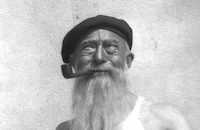Hold Everything
Cast & Crew
Roy Del Ruth
Joe E. Brown
Winnie Lightner
Georges Carpentier
Sally O'neil
Edmund Breese
Film Details
Technical Specs

Synopsis
At a training camp preparing for a heavyweight championship bout are Georges La Verne with Pop O'Keefe, his manager; Nosey Bartlett, the camp cook; and Gink Schiner, a lazy, second-rate fighter who is to appear in a preliminary before the big fight. Although Georges is pursued by society girl Norine Lloyd, he is more interested in Sue Burke, his advisor and childhood playmate; Toots, Gink's sweetheart, is constantly concerned over Gink's flirting with pretty girls. Larkin, manager of champion Bob Morgan, comes to the camp and attempts to have the fight "fixed," but O'Keefe informs him Georges will do his best. The Kicker is delegated by Larkin to incapacitate Georges at a party with a knockout pill, but Gink switches his drink with Nosey's. To everyone's surprise, Gink wins his bout. Before his fight, Georges is accosted by Morgan, and he fares badly in the ring until, with a change of tactics, he knocks out Morgan and wins the title.

Director

Roy Del Ruth
Cast

Joe E. Brown

Winnie Lightner
Georges Carpentier

Sally O'neil

Edmund Breese
Bert Roach

Dorothy Revier
Jack Curtis
Tony Stabeneau
Lew Harvey
Jimmie Quinn
Crew

Film Details
Technical Specs

Quotes
Trivia
This film is believed lost. Please check your attic.
When the picture was released in 1930, Bert Lahr, who had created the role of Gink on Broadway, strongly criticized the fact that Brown had copied many of Lahr's mannerisms in the film.











